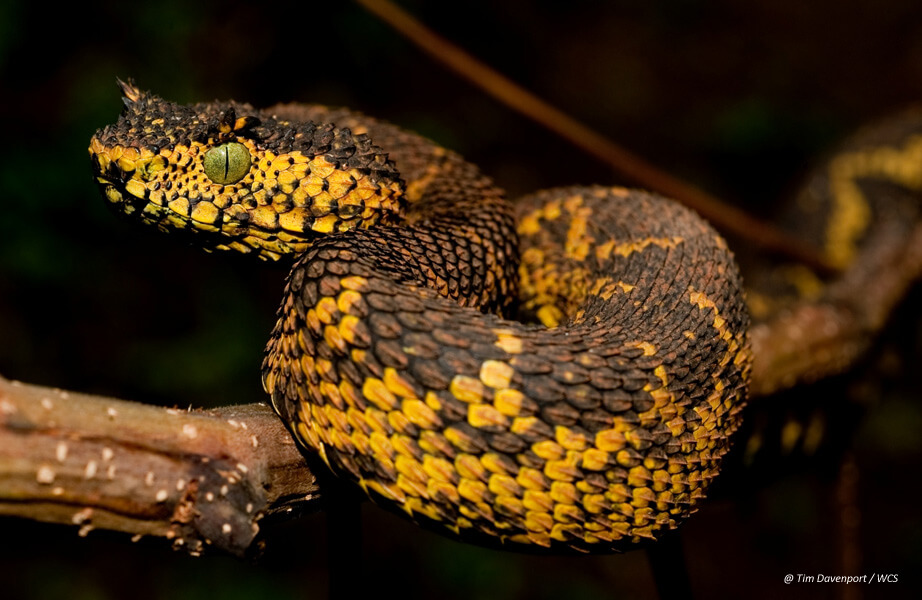 The Wildlife Conservation Society announced an exciting discovery this past week. They announced the discovery of a snake from a remote area of Tanzania in East Africa.
The Wildlife Conservation Society announced an exciting discovery this past week. They announced the discovery of a snake from a remote area of Tanzania in East Africa.
“The striking black-an-yellow snake is called Matilda’s horned viper,” said WCS in a statement. The discovery is described in the December issue of Zootaxa. It’s named after the daughter of co-author Tim Davenport, Director of WCS’s Tanzania Program.
“It measures 2.1 feet and has horn-like scales above its eyes,” said WCS.
The species sports spectacular colors and reportedly resembles the forest horned viper by bearing horn-like supraciliary scales. It differs in size, body proportions, scalation, scale ultra-structure and distribution.
The new species of arboreal forest viper was discovered in a forest fragment in the Southern Highlands of Tanzia. Authors are reportedly keeping the exact location of the new species a secret, since the snake could be of interest to the illegal pet collectors. Currently, the wildlife trade is the second largest illegal trade in the world after drugs, estimated to be currently around $159 billion a year. In many parts of Africa, according to AtherisMatildae.org, it’s the single biggest threat to the existence of many species in the world.
The snakes habitat is in peril too, estimated at only a few square miles and already severely degraded from logging and charcoal manufacture.
The snake has been classified as critically endangered. The authors, including Michele Menegon of Museo delle Scienze of Trento, Italy; Tim Davenport of the Wildlife Conservation Society; and Kim Howell of the University of Dar es Salaam have already established a small captive breeding colony.
The small breeding program is intended to protect the new species’ population and facilitate the conservation of its threatened habitat. The group is even planning on making the first few dozen offspring available from the captive population to provide the market with captive-bred specimens to avoid problems down the road.


































